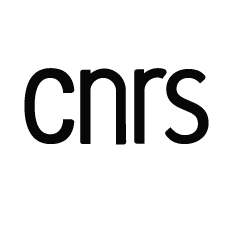What is a computer program ? Final conference
ColloqueWe are happy to announce that the next public PROGRAMme workshop will be held from 14-15 june 2022, Lille, MESHS, Espace Baietto.
The workshop is co-located with the fifth international conference on the History and Philosophy of Programming, HAPOP-5.
The two events will be organized in a hybrid format.
WHAT IS A COMPUTER PROGRAM?
This seemingly simple question has no simple answer today, but the responses one gives to it affect very real problems: who is responsible if a given piece of software fails; whether a program is correct or not; or whether copyright or patent law applies to programs. The project is anchored in the conviction that a new kind of foundational research is needed. The broad range of scientific and societal problems related to computing cannot be addressed by any single discipline.
The question “What is a program?”, is a call for deeper critical thinking about the nature of programs that is both foundational, in the sense that it goes beyond specific problems, but also accessible, in the sense that it should be open to anyone who is willing to make an effort in understanding this basic technique from a broader horizon.
In this PROGRAMme workshop members will be presenting their different chapters planned for two books.
REGISTRATION
There is a joined registration for HAPOP-5 and the PROGRAMme workshop. Registration is free but mandatory. Participants can also register for diner which is not covered by general registration.
Registration closes on June 1
PROGRAM
14 june 2022:
Note: the chapters presented on this day are chapters of a planned monograph with PROGRAMme as an author. By consequence, while each chapter has only one presenter, it involves the work of many others.
9h-10h: What is a computer program? An anti-disciplinary view
presented by Liesbeth De Mol
respondent: Warren Sack
10h-11h: Classifying programs
presented by Baptiste Mélès
respondent. Gilles Dowek
11h-11h30: BREAK
11h30-12h30: Logic – a declaration of independence?
presented by Giuseppe Primiero
Respondent: Luc Pellisier
12h30-14h: LUNCH
14h-15h: Notations. There is no escape
presented by Tomas Petricek
respondent: Arnaud Bailly
15h-16h: Machines – Hide and seek
presented by TBA
Respondent: Arianna Borrelli
16h-16h30: BREAK
16h30-17h30: Systems – the system if dead! Long live the system.
presented by: TBA
Respondent: Lennart Melzer
15 June 2022:
Note: the chapters presented on this day are chapters of a planned edited volume with PROGRAMme as an editor.
8h50: Introduction
9h00-11h10: Ideals of programs
Introduction to the topic
Alberto Naibo and Julian Rohrhuber, Abstract programs – postponing concrete knowledge
Respondent: TBA
Selmer Bringsjord, Sizing Programs: A Progression of Ever-Larger Programs
Respondent: Tomas Petricek
Troy Astarte, “The Meaning(s) of Program(s)”.
Respondent: TBA
Selmer Bringsjord, Transcendent Programs: Is There a Universal Programming Paradigm?
Respondent: Mate Szabo
10h10-11h40: BREAK
11h40-12h50: Controlling programs
Introduction to the topic
M. Carlé (Ionian University – Corfu), Literate programming and containerization – Bringing about the real computer revolution
respondent: David Schmudde
Free programs – Liberating software and its production
respondent: TBA
12h50-14h00: LUNCH
14h-15h40: Programs in time and space
Introduction to the topic
M. Bullynck and J.B. Joinet, Program time – Relating temporalities of programs and their environments
Respondent: Anthony Moore
E. Mori, D: Schmudde and P. Falcao, Cultural entities – Preserving and curating programs in museums and archives
Respondent: Thomas Haigh
E. Daylight, Causality arguments
Respondent: Felice Cardone
15h40-16h10: BREAK
16h10-17h40: Knowing programs
Introduction to the topic
N. Angius, H. Stephanou, N. Wiggershaus, Computational theories – Representing the world through programs
Respondent: Ray Turner
F. Cardone, Undetermined programs – Crossing between determinism and non-determinism
Respondent: Edgar Daylight
R. Turner, The How and the What: An Ecumenical Dialogue
Respondent: Mael Pégny
